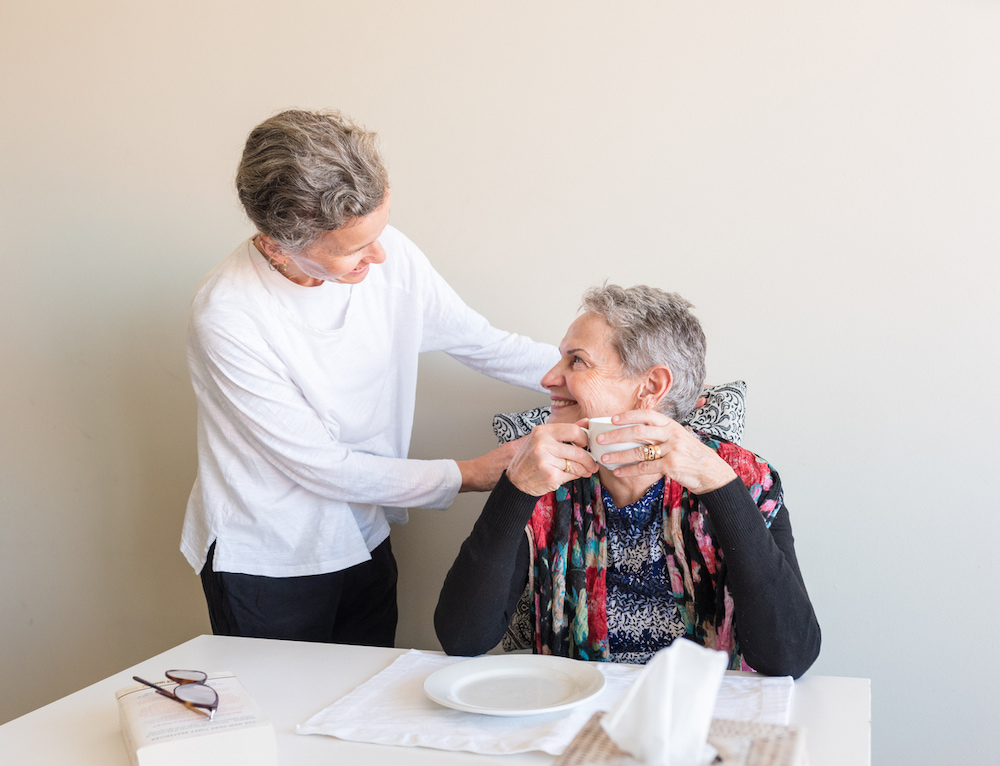A new national wellbeing survey shows stark generational and income divides amid cost-of-living crisis, as well as the need to support Australian carers.
Australian Unity, the nation’s first member-owned wellbeing company, has released its latest Wellbeing Index survey report in partnership with Deakin University.
Conducted in June, the survey measured the subjective wellbeing of more than 2,000 Australians aged 18 to 97 (2 per cent of them, or 34 people, in the ACT) against a series of national and personal life areas, including the economy, health, and community connectedness. Researchers also examined mental distress and carer wellbeing (professional and informal).
Data was collected amid global unrest, repeated interest rates rises, and more than half of the population reporting feelings of financial stress just months earlier. Against this climate, the survey found Australians’ overall satisfaction with their lives and life in Australia remained at record lows.
On the National Wellbeing Index, scores for most life areas remained at the lower end of the normal range.
The ACT was the only state that scored above the range, scoring 6 to 7 percentage points higher than Tasmania, South Australia, Queensland, or Victoria.
However, across the country, satisfaction with the economic situation fell sharply from 2022, hitting its lowest level in 22 years – worse than that recorded during the Global Financial Crisis in 2008.
“Australians are feeling worried about the economy and financially stressed,” said Dr Kate Lycett, Research Fellow from the School of Psychology at Deakin University and lead researcher of the Australian Unity Wellbeing Index.
“Rising living costs and interest rates are putting immense pressure on many people, particularly those with mortgages and those trying to get into the housing market. Without a lift in economic satisfaction, our national wellbeing will likely remain stagnant.”
Scores for life areas on the personal wellbeing index remained similar to 2022 levels. However, clear age and income inequities emerged. Those aged 55 years and under, and those with a household income of $100,000 or less, recorded notably lower personal wellbeing than older adults and those with higher household incomes, respectively. These same age and income divides were also seen on satisfaction with standard of living.
“Addressing wellbeing inequities in these respective demographics is essential,” says Esther Kerr, CEO Wealth and Capital Markets at Australian Unity.
“The findings likely reflect a ‘pressure cooker’ effect caused by the rising cost of living, higher interest rates, stubborn inflation, and global economic uncertainty. This appears to be affecting the financial wellbeing of people who were previously able to cope or had a savings buffer to carry them through tough times.”
Pressure on the ‘care economy’
The survey also explored the wellbeing of Australians with professional and informal caring responsibilities; a timely exploration given the number of people aged 80 years and over is expected to triple by 2063, forecasting considerable pressure on the future care economy.
Informal carers felt less satisfied with their access to carer support than professional carers did. They also recorded lower personal wellbeing and higher mental distress – particularly those providing informal care for more than 20 hours per week. Those with a caring load of 40 hours or more seemed to do even worse.
“These findings suggest that people with high caring commitments in informal capacities need more support,” Dr Lycett said. “They are also strong learnings for us as a society when we think about the ageing population and just how big the care economy is going to become.”
There is more demand for professional caring services to help improve the wellbeing of informal carers, but the shortage of professional carers has been a problem for many years, said Prue Bowden, Australian Unity’s CEO of Home Health.
“The care economy is fundamental to the health of our whole society, not just our ageing population,” Ms Bowden said.
“It’s integral that we ensure workers in the industry are provided with secure, safe jobs with decent wages, conditions, and opportunities for career development. In order for the care workforce to grow, we need to professionalise the work and shift the community mindset from being an unskilled job to one of the most rewarding careers.”
The Australian Unity Wellbeing Index is one of the longest-running national studies of subjective wellbeing in the world. Since its inception in 2000, data from more than 75,000 Australians has been widely used by researchers, governments, and organisations to gain insights into how satisfied citizens are with their lives and the nation.
If this story raised concerns, help is available. Call or visit the website of Lifeline (13 11 14) or Beyond Blue (1300 22 4636). In an emergency, call 000.
Get local, national and world news, plus sport, entertainment, lifestyle, competitions and more delivered straight to your inbox with the Canberra Daily newsletter. Sign up here.



